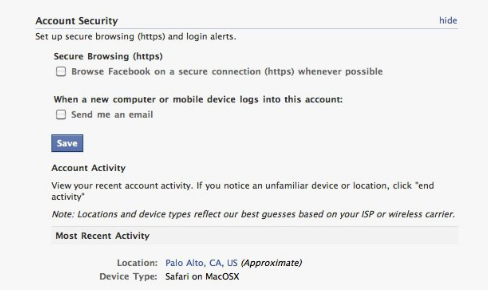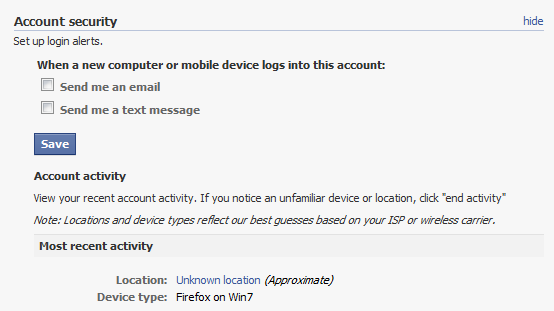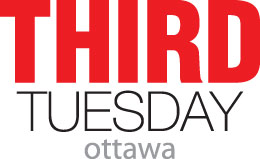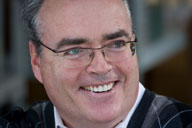If you were asked to give public relations practitioners the three best pieces of advice about how to succeed in social media, what would you tell them?
I’ve been asked to do that at a PR Agency Bootcamp organized by the Canadian Council of Public Relations Firms. I’ll be appearing with some social media-savvy panellists: Martin Waxman, Mark Evans, Michael O’Connor Clarke and Alex de Bold. So I’ll need to be on my best game in order to keep up with these folks.
As I thought through all the advice I could offer about being successful in social media, I settled on these three pieces of advice.
1) Be a blogger.

If you don’t stand out from the crowd, you won’t have a stand-out career. You no longer are competing just with the person across town, but with people across the continent and the globe. The age of social media has made it possible for really smart and creative people to project their voice and their identity online – beyond their own local market right into yours. If you don’t raise your voice, they’ll scoop the best jobs and assignments right out from under your nose. Where will that leave you? Probably competing on cost for low value assignments and routine jobs. Competing on cost leads in only one direction – razor thin margins, working longer and longer hours, and burnout.
So, you need to stand out. And stand out in a way that will impress others who may be looking for smart, talented people.
“But,” you say, “I’m on Twitter and Facebook and I have thousands of followers and friends. That makes me stand out.” Well, maybe it makes you stand out as a well connected person and a person who likes to be part of the flow of chatter. But it does not make you stand out as a smart, thoughtful person.
Look around and you’ll realize that virtually all of the people in PR with large followings on Twitter and Facebook also have blogs in which they frequently post content into which they’ve put a lot of thought. Look at people like Steve Rubel, Mitch Joel, Shel Holtz, John Bell, Jay Baer, and Gini Dietrich. Yes, they have thousands of followers on Twitter. But they seed the conversation with intelligent, long form blog posts. That’s thought leadership. And it’s different from being a gadfly on Twitter or Facebook.
Don’t lurk in the shadows. People respect and follow those who have something original to say. There’s no excuse today for being unknown. You a unique perspective on the world. Share it.
And when you do share your perspective, put that perspective on your own place where you can develop your ideas over time. Where people can see your body of thought. Blogs are still the best place for that. You own your blog. It’s searchable. It is a platform for every type of content: text, audio, pictures and video. It’s linkable. If you have something worthwhile to say, why wouldn’t you put it on a blog?
Stand out from the crowd. Be a blogger.
2) Become the new beat.
We are in a constant search for expert opinion. Research is a neverending activity for people who need to write about a subject. So contribute to the body of knowledge.
Don’t think about yourself as someone who’s going to pitch stories to reporters. Think of yourself as a contributing member of a community of interest. Research and write as if you were a beat reporter.
Pick areas that you care about and structure your public relations practice around becoming a member of the expert community. Write about your area of expertise. Share what you know. Become recognized as someone who knows your stuff and contributes real value on an ongoing basis.
As you do this, you’ll find that you attract a following of other people who share your interest. Many of them will have blogs of their own. Some will even be reporters. And as they follow you, you’ll build credibility and trust. When you do talk about a client, you’ll be able to do this (with full disclosure, of course) to a group of people who already care about the subject area. They’ll know you and they’ll listen to you.
This is the future of public relations. Isn’t that better than building your workday around a series of cold call pitches to reporters who are little more than names on a media list?
3) Develop your own sources
 There’s been a lot of talk from some people about how they stopped subscribing to RSS feeds or using their feed readers because they now get pointers to the content that matters to them through the people they follow on twitter or via Facebook status updates.
There’s been a lot of talk from some people about how they stopped subscribing to RSS feeds or using their feed readers because they now get pointers to the content that matters to them through the people they follow on twitter or via Facebook status updates.
If you’re a serious professional trying to develop a reputation for expertise in an area, you absolutely need to recognize that getting your links through twitter or Facebook links means that others are making the primary judgments about what content you see and framing it in their perspective. That’s lazy and it’s also biases your own thinking. You should make up your own mind about what’s important and approach content from your own unique perspective.
I may see one thing in an article. You may see something totally different. Why? Because we are approaching that content from our own unique perspectives. So if you want to be taken seriously and if you want to be able to generate interesting, original writing, start looking at your feed reader again. Start finding and subscribing to interesting and authoritative voices and read those every day with a fresh eye to what may be in that content. That primary research will give you an advantage over everyone who is dependent upon what others may link to.
Your turn
So there it is. Three things that I would tell a PR practitioner about how to succeed in social media.
Do these make sense to you? Are there other things that you would put ahead of any of my points? Or do you think I’m just plain wrong? Let me know in a comment below this post. I’m always interested in learning from those who are prepared to consider and challenge my ideas. (Maybe that should be a separate piece of advice: Always keep an open mind.)














